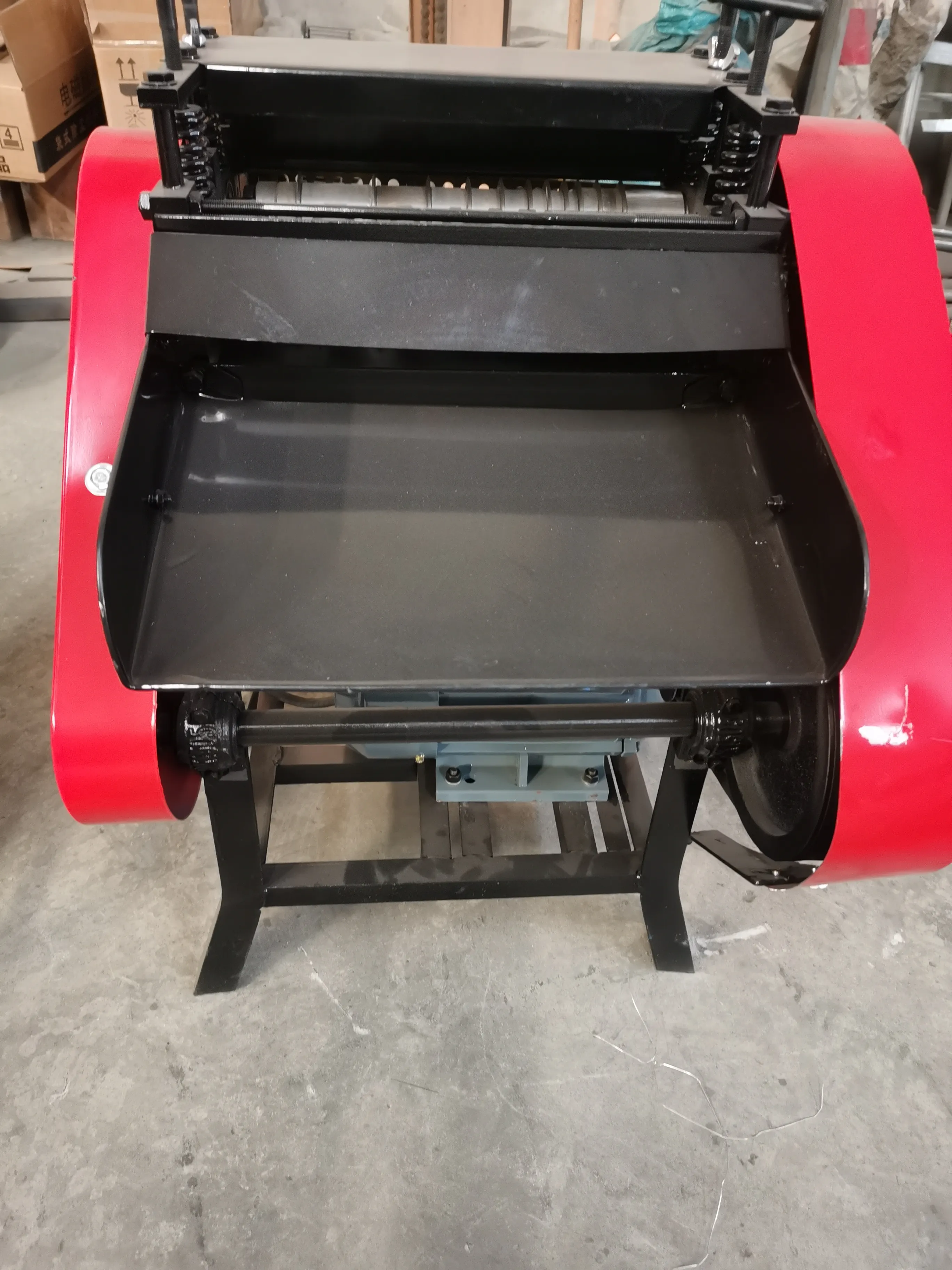

දෙසැ. . 15, 2024 20:27 Back to list
The Importance of Cable Granulation in Recycling
In today's rapidly advancing technological landscape, the need for effective recycling methods has become paramount. One facet of this is cable granulation, a process that plays a crucial role in recovering valuable materials from discarded cables. Understanding cable granulation and its importance can shed light on both environmental sustainability and the economics of recycling.
Cable granulation is the process of shredding and separating materials from old or unused electrical cables. These cables often consist of various components, primarily copper or aluminum conductors, insulated with polymer materials. The granulation process involves breaking down these cables into granules, allowing recyclers to extract metals and plastics efficiently.
The significance of cable granulation can be analyzed from several perspectives. Firstly, from an environmental standpoint, traditional disposal methods for cables can contribute to landfill overflow and toxic waste. Electrical cables may contain harmful substances like lead, PVC, and other toxins that can leach into the soil and water supply if not managed properly. By implementing a granulation method, these materials can be recycled, significantly reducing the ecological footprint associated with cable waste.
Furthermore, the recycling of metals through cable granulation has substantial economic implications. Copper, for instance, is a highly sought-after metal in various industries, including construction, automotive, and electronics. As the demand for copper continues to rise, the recycling of old cables to reclaim this metal can result in significant cost savings and provide a viable resource. The granulation process can efficiently recover up to 99% of the copper, making it a lucrative practice for businesses in the recycling sector.

Additionally, the process of cable granulation is advancing with technology. Modern granulators are equipped with sophisticated technologies that enhance efficiency and minimize waste. Automated systems allow for precise control over the granulation process, ensuring a high quality of the end product. Furthermore, advancements in sorting technology enable recyclers to separate materials more effectively, thus maximizing recovery rates and ensuring that non-recyclable materials are disposed of responsibly.
One might wonder about the challenges associated with cable granulation. The process itself requires a significant initial investment in machinery and infrastructure, which can be a barrier for small recyclers. Additionally, regulations concerning the handling and transport of waste materials must be adhered to, complicating the business of recycling cables. However, the long-term benefits outweigh these challenges. As the world increasingly shifts towards a circular economy, the potential for growth in the cable recycling industry appears promising.
Moreover, public awareness and participation in recycling practices have shown a marked increase in recent years. Individuals and businesses are becoming more knowledgeable about the importance of recycling electronic waste, including cables. This growing consciousness is driving demand for recycling services, thereby encouraging companies to adopt sustainable practices like cable granulation.
In conclusion, cable granulation is an essential process that aligns environmental responsibility with economic potential. By promoting the recovery of valuable metals and reducing harmful waste, it significantly contributes to sustainability efforts within the recycling industry. As technology continues to evolve, the efficiency and effectiveness of cable granulation will likely improve, establishing it as a cornerstone practice in the broader context of waste management and resource recovery. Emphasizing the significance of this process is vital for fostering a sustainable future, where precious materials are reused rather than discarded.
Latest news
Troubleshooting Common Eddy Separator Problems
NewsJul.04,2025
The Role of Metal Recycling Plants in Circular Economy
NewsJul.04,2025
The Impact of Recycling Line Pickers on Waste Management Costs
NewsJul.04,2025
Safety Features Every Metal Shredder Should Have
NewsJul.04,2025
How Industrial Shredders Improve Waste Management Systems
NewsJul.04,2025
How Cable Granulators Contribute to Sustainable Recycling
NewsJul.04,2025